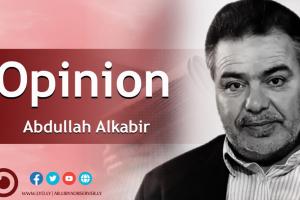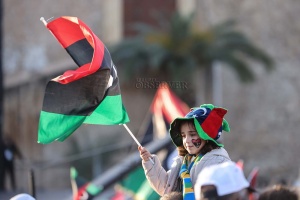By Abdullah Alkabir, Libyan political writer and commentator
Is it time for elections?

The armed clashes that took place in Tripoli recently revealed the pressing need to hold elections and end all current entities. The experience of the past years has proven that all transitional authorities have no tools with which to confront the expansion and tyranny of armed groups. Indeed, all post-GNC-election governments have found themselves forced to deal with armed groups, to maintain security and secure many sites throughout the country, because of the absence of tools that the government can use to impose security, as the state of institutional vacuum is clear, and all successive governments have been unable to deal with the issue of weapons and armed formations.
The trend towards giving the armed factions an official character was an inevitable measure in many situations, given the continuation of the state of conflict and the absence of reference institutions, to deal with emergency situations that require the use of force, or the threat of it at the very least, so many in the capital speak of the roles played by the Deterrence Force, In combating terrorism and organized crime, and raiding dens involved in drug and alcohol trafficking, but its human rights record was very poor, and the force’s members did not abide by human rights charters and standards. As for Brigade 444, it contributed to combating smuggling and resolving conflicts between some armed factions, and despite its affiliation with the Chief of Staff in the western region, its clear loyalty is to its direct leadership, as is the case with most armed factions and formations.
Regardless of the apparent and hidden reasons for the recent conflict between the two largest factions in Tripoli, the state of competition for power and influence is the main driver of the conflict, as the Deterrent Force has come to see the 444th Brigade, with the combat capabilities of its members, and their steadily increasing numbers, a significant competitor, and it will eventually carve out spaces From their influence and authority, so confrontation was inevitable, no matter how long its outbreak was delayed.
There is a positive point in this conflict and in previous conflicts, which is the success of the social mediation of notables and social figures in resolving the conflict, and achieving a settlement that ends the fighting and stops bloodshed. In this crisis, and in previous crises, the role of the official authorities was secondary, while social figures played the most prominent role in reaching satisfactory or acceptable solutions and settlements, and this necessarily accumulated experiences that confirmed the ability of Libyans to negotiate and dialogue, without direct interference from the official authority, or resorting to external mediation.
Almost everyone realizes that all solutions and settlements are temporary, as long as the causes of the conflict exist, and that there is no guarantee that the clashes will not return, and that some parties are trying to exploit the crisis to overthrow the government and form a new transitional government.
The government and the Presidential Council with its three heads, showed incompetence and failure to address the crisis, and failed to appear during the first day of the fighting, preferring silence and waiting for clarity of vision, before taking a stand, but this alone is not a sufficient justification for concluding a new deal, which brings a new government that will not differ from its predecessors and will fall at the mercy of the armed forces, because they have no other way but to deal with them in a manner of appeasement.
Therefore, at the very least, any government formed from an elected parliament will possess electoral legitimacy, and this legitimacy will be the force with which it will confront any party that does not heed to its will and decision. The approach to address these emergency crises from time to time, and all other crises, begins with the renewal of legitimacy through elections, and any other way will not produce results different from what preceded it.
Disclaimer: The views and opinions expressed in this article are those of the writer, and do not necessarily reflect those of the Libya Observer



